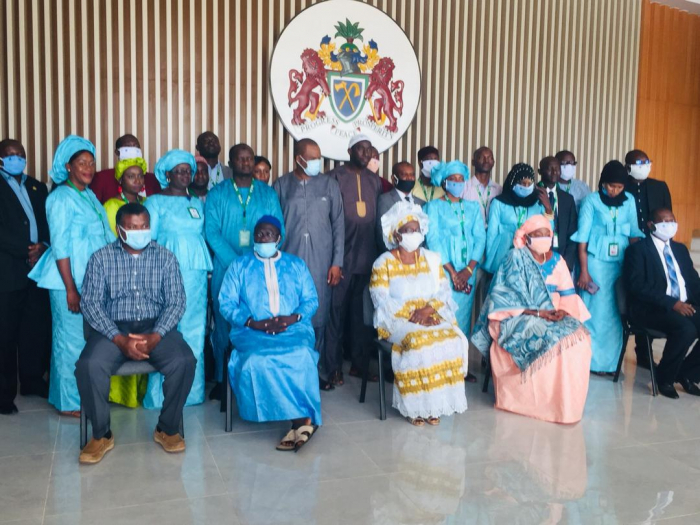
Dr. Isatou Touray was speaking on Wednesday during National Environment Management Council (NEMA) meeting held at Sir. Dawda K. Jawara conference centre.
Acting as the chair to the council, Dr. Touray maintained that these two factors hampering sustainable environmental management combine with the poor enforcement of existing environmental legislations.
“Environmental issues such as land degradation, biodiversity loss, loss of forest cover, coastal erosion, ineffective waste and pesticides management can severely hamper the development of The Gambia if the situation is left unchecked.” she said.
She thus assured that the government of The Gambia would review the existing acts on the NEMA and strengthen its institutional and regulatory frameworks on environment.
Due to the country’s geo-physical condition, coupled withits climatic extremes, and high degrees of exposure and vulnerability,she maintained that the country is prone to a wide range of hazards including flash floods, windstorms, disease outbreak amongst others.
The vice president thus called on Gambians to ensure a clean environment so as to ensure a clean Gambia.
For his part, Lamin Dibba, minister of Environment and Natural Resources called for attitudinal change towards the environment, saying‘no economy can be sustained without environment’.
“Environment is one of the most important portfolios because without a fertile land, a land which is free of pollutants, it would be difficult to have food systems that would be healthy for our people.”
Minister Dibba was however quick to add that environment is important but that so long as ‘our attitude remains’, it can have consequences on our lives and livelihood.
“Section 6 of the National Environment Management Act, which was established in 1994, has listed the membership of the National Environment Management Council and the objective of the agenda is to recognise the importance of ministries, whose presence is necessary in the council.”





